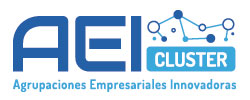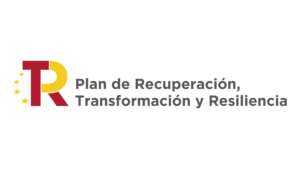BODEGAS 4.0
Digitalization and reuse of water and by-products in the winemaking sector.
Digitalization and reuse of water and by-products in the winemaking sector.
Implementation period
January 2022-August 2022 (Phase 1)
September 2022-April 2023 (Phase 2)
Scope of work
Digital Technology
Adaptive management and governance
Participantes
ZINNAE (Project coordinator) https://zinnae.org/
Bodegas Aragonesas https://bodegasaragonesas.com/
VELABER Consulting https://pamagroup.es/
ACAI Depuración https://acaidepuracion.com/
INAR Tecnologías EN Home – Inar Tecnologías (inartecnologias.es)
Asociación de la Industria Alimentaria de Castilla y León, VITARTIS https://www.vitartis.es/
Bodegas Grupo YLLERA https://www.grupoyllera.com/
Funding
Project supported by the Ministry of Industry, Trade and Tourism, funded by the European Union – Next Generation EU Phase 1 AEI-010500-2021b-64 and Phase 2 EI-010500-2022b-240




Description
This Project is designed to be executed in three successive phases:
In this first phase, BODEGAS 4.0 focuses on optimising water use processes in a winery. To this end, the analysis and improvement of the wineries’ capacity to optimise cycle, improve water reuse levels and reduce operating and maintenance costs will be addressed.
Objectives
• Analyse the Physico-chemical variables at different points of the wineries to refine the design of the adjacent nano-membrane installation.
• Perform a situation analysis on water use, applying LEAN tools and massive data processing to the information provided by the sensor system to optimise water use and the intelligent control implemented in the project.
• Develop predictive maintenance elements in the equipment related to water use and treatment.
• Digitalization of the processes, collecting information on their flow rates, duration and outputs.
• Design and set up a treatment and reuse installation based on biodiscs -nanomembranes.
• Design and implement reuse intelligence in processes for maximum reuse through massive data analysis from sensors.
• Execute the necessary tests and measurements to improve effluent quality.
• Evaluate the impact of 4.0 technologies on the operation and maintenance costs of both plants and the final economic return for the winery, along with their potential for replicability in other similar facilities.
• Implement a preventive maintenance system embedded in the intelligence and using data and responses.
Results
Three innovative tools will be used for this purpose:
• Application of 4.0 tools (IoT and smart management) for the digitalisation and characterisation of waterflows in wineries.
• Implementation of LEAN WATER Methodology.
• Design of a water treatment facility by combining innovative technologies: biodiscs, nano-membranes and sensor and control systems.